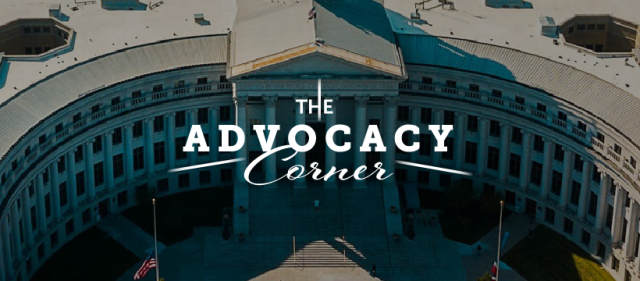2024 Legislative Review
There are 100 legislators comprised of 35 state Senators and 65 state Representatives at our State Capitol who make policy decisions that impact Realtors®, their businesses, housing, and the real estate industry. None of these 100 legislators are Realtors® or hold current real estate licenses. It’s critical that legislators know and hear collectively from our professionals and practitioners who work in real estate about the effects, both intended and unintended, of proposed policies. Our political power comes from 26,000 Realtors® working together as part of Colorado’s largest professional trade association. To that end, the Colorado Association of Realtors® (CAR) has the Legislative Policy Committee (LPC) comprised of at least 35 Realtors® but upwards of 60 members who are appointed annually by CAR leadership and engaged in reviewing legislation and adopting formal CAR positions on them. These positions include:
- Support – a good bill in alignment with our strategic framework and policy statements.
- Oppose – a bill that needs to be defeated, and there is a pathway to defeat it, based on our strategic framework and policy statements.
- Amend – a bill needs changes, or amendments, for it to be workable or improved upon. If a bill is harmful but there is not a path to defeat it, amending it to reduce impact is critical.
- Monitor – the bill does not require CAR to actively engage. It may not harm Realtors®, but we monitor it to make sure no amendments may be added that could cause harm to Realtors® or the real estate industry.
NOTABLE 2024 BILLS
Lodging Property Tax Treatment (Short-Term Rentals)
CAR led efforts to defeat this attempt to reclassify non-primary residences rented as a short-term rental (STR) more than 90 days per year as commercial lodging property, subjecting them to the higher assessment rate of 27.9%. The bill would have quadrupled property taxes on STRs, balloon lodging assessments by over $6 billion (PTY 2026), curtail local tourism-based economies, and complicate the housing market by imposing commercial taxes on residential properties.
Deceptive Trade Practice Significant Impact Standard
CAR again led efforts to defeat this bill that would have lowered the “public impact” standard to a single person for a claim to qualify as an unfair or deceptive trade practice claim under the Colorado Consumer Protection Act (CCPA). Current law requires a significant number of consumers to be harmed before a claim could be considered. By allowing a single claimant to pursue a CCPA claim, impact on Realtors® could be very punitive, including treble damages and attorney fees, which your errors and omissions insurance policy does not cover.
Home Sale Wildfire Mitigation Requirements
CAR defeated this bill mandating a wildfire mitigation certification at point-of-sale for existing residences in 12 specific counties. This bill was amended to allow any of the 64 counties to require a mitigation certification. CAR actively opposed HB1300 because it would not guarantee homeowners insurance for a property, could delay the sale of a property for months waiting for mitigation or certification, and drive up the cost of housing with sellers adding the cost of mitigation for buyers.
Extend Outreach Campaigns Wildfire Risk Mitigation
The bill provides the Colorado State Forest Service more bandwidth to educate residents in the wildlandurban interface about wildfire risks and mitigation. The timeline to educate residents was extended for an additional three years. CAR supported this bill because property owners should be given the best chance to reduce the threat of wildfire and be part of the ongoing solution to ensure insurance coverage and contain costs.
Protections for Real Property Owners
Despite the bill title, HB1230 would have significantly increased the costs and frequency of litigation on single-family construction. Colorado already has a high-risk of litigation for condos, and this would have put single-family construction in the same legal environment as condo construction, reducing the number of single-family houses being built. This potential reduction in housing stock is cause for concern as it could impact the state’s availability and affordability of single-family homes. CAR, in partnership with other organizations, was able to defeat this bill.
LOOKING AHEAD TO 2025
There are at least two key pieces of legislation from 2024 that CAR is working on during the interim to hopefully have introduced in the 2025 legislative session.
Consumer Protections in Artificial Intelligence SB205
CAR opposed this bill, but it passed in a rush during the final days of session. While the intent was to prevent algorithmic discrimination using AI systems that could harm people accessing housing and financial lending, there are unintended consequences. This bill does not take effect until 2026, so CAR is actively engaged now to present a 2025 legislative solution to refine problematic definitions. There is concern that using the application FOREWARN could be classified as a “consequential decision” using an AI system and therefore be subject to provisions within the bill.
Right to Remedy Construction Defects SB106
CAR and many others supported this legislation, which aimed to reduce the risk of costly litigation for condo developers to encourage these developers to come back into the Colorado market and produce more housing supply. Unfortunately, this legislation did not pass in the 2024 legislative session; however, CAR will continue fighting for more condos and housing supply when the 2025 legislative session begins.



